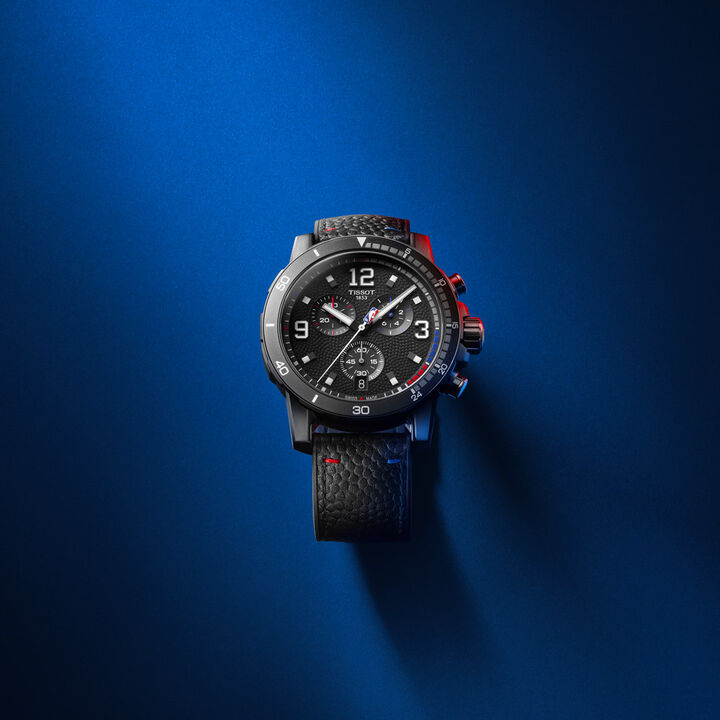
What’s the Difference Between Automatic, Mechanical, and Quartz Watches?
When choosing a watch, one of the most critical decisions is selecting the type of movement: automatic, mechanical, or quartz. These three movements define how a watch functions, its level of precision, and even its craftsmanship. In this guide, we’ll break down the differences to help you decide which type suits your needs best.
What is an Automatic Watch?
An automatic watch is a self-winding mechanical watch that harnesses the natural motion of your wrist to keep itself powered. Inside the watch is a rotor that rotates as you move, winding the mainspring and storing energy. This energy is then slowly released to keep the watch running.
Key Features of Automatic Watches:
- No need for batteries: Automatic watches wind themselves, meaning you won’t need to replace a battery.
- Craftsmanship: Automatic movements are prized for their complexity and are often seen in luxury watches.
- Maintenance: They may require servicing every few years to ensure optimal performance.
- Power reserve: Most automatic watches have a power reserve of 24 to 48 hours. If not worn regularly, they will stop and need to be wound manually or worn again to restart.
Best for: Watch enthusiasts who appreciate traditional craftsmanship and enjoy the idea of a timepiece powered by movement.
What is a Mechanical Watch?
A mechanical watch is powered entirely by a manually wound mainspring. Unlike automatic watches, mechanical watches require regular winding by hand. They are the oldest type of watch movement, dating back centuries, and are highly regarded for their precision engineering and intricate designs.
Key Features of Mechanical Watches:
- No battery: Like automatic watches, mechanical watches don’t rely on batteries, which appeals to those who value traditional watchmaking.
- Winding required: You’ll need to wind your watch daily (or every few days, depending on the model) to keep it running.
- Longevity: With proper care, mechanical watches can last for generations.
- Accuracy: Mechanical watches may lose or gain a few seconds per day, making them less accurate than quartz watches.
Best for: Those who appreciate tradition and are willing to engage in the daily ritual of winding their watch for a piece of history on their wrist.
What is a Quartz Watch?
A quartz watch is powered by a battery and uses a quartz crystal to keep time. The battery sends an electric current through the crystal, causing it to vibrate at a precise frequency. These vibrations are converted into regular pulses that drive the watch’s hands.
Key Features of Quartz Watches:
- Highly accurate: Quartz watches are far more accurate than mechanical or automatic watches, typically losing or gaining just a few seconds per month.
- Low maintenance: Aside from occasional battery replacement, quartz watches require minimal maintenance.
- Affordable: Quartz movements are cheaper to produce, making them more affordable than their mechanical counterparts.
- Variety of styles: Since quartz movements take up less space, these watches can come in a wider range of designs and features.
Best for: People who prioritize accuracy, low maintenance, and affordability in a timepiece.
How to Choose the Right Watch for You
-
Automatic watches are ideal if you love mechanical engineering and want a timepiece that’s powered by your movement. They blend artistry and innovation, often at a higher price point.
-
Mechanical watches are for those who appreciate the craftsmanship and history behind traditional watchmaking. If you enjoy the process of winding your watch and owning a piece that can be passed down through generations, this is the movement for you.
-
Quartz watches are perfect for those who need a reliable, low-maintenance timepiece with exceptional accuracy. They’re budget-friendly and come in a wide range of designs, from simple to high-tech.
Conclusion
Whether you’re drawn to the precision and low-maintenance of quartz, the time-honored tradition of mechanical, or the ingenuity of automatic movements, there’s a watch for everyone. Consider what you value most—whether it’s craftsmanship, accuracy, or ease of use—when choosing your next timepiece.


